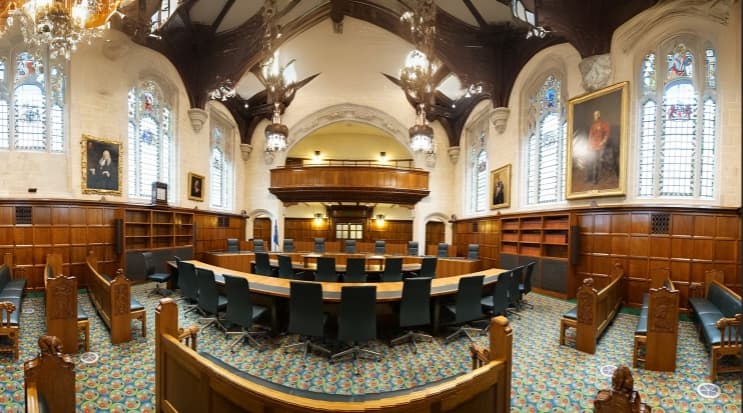
UK Supreme Court Rules Woman Refers to Biological Sex Under Equality Laws
Landmark Judgment on the Legal Definition of Woman Sparks Debate
In a landmark decision, the UK Supreme Court has ruled that the term ‘woman’ under the Equality Act 2010 refers specifically to biological sex, not gender identity. The case, which centered on whether a transgender woman with a Gender Recognition Certificate (GRC) is protected from discrimination as a woman under the law, has sparked widespread debate on transgender rights and equality laws.
The appeal was brought by the For Women Scotland (FWS) campaign group, which argued that trans women should not be legally recognized as women for the purposes of gender equality protections, as these protections should only apply to those with biological sex as female. The group challenged the guidance issued by the Scottish government in relation to a 2018 law aimed at increasing the number of women on public sector boards.
Court's Judgment: Biological Sex as the Basis for Legal Protections
The UK Supreme Court upheld the FWS appeal, ruling that the terms ‘woman’ and ‘sex’ within the Equality Act 2010 refer explicitly to biological women and biological sex. Patrick Hodge, the Deputy President of the Supreme Court, emphasized that the ruling should not be seen as a triumph for one group over another. He stated, “We counsel against reading this judgment as a triumph for one or more groups in our society at the expense of another – it is not.”
Transgender Rights in the UK: A Closer Look at Legal Protections
The case has important implications for the legal recognition of transgender individuals in the UK. Transgender women, who have undergone legal gender recognition with a GRC, had previously been afforded the same legal protections as biological women under certain circumstances. The ruling now sets a precedent for how transgender rights will be viewed within the scope of equality legislation in the UK.
However, the Supreme Court's decision reflects the ongoing legal challenges surrounding transgender issues in the UK, and the balance between recognizing gender identity and safeguarding the rights of biological women in areas such as employment, healthcare, and public sector representation.
Legal Experts Weigh In on the Ruling
Legal experts have weighed in on the decision, noting that it brings to light the complexities of applying equality laws to evolving gender identities. Some experts argue that the ruling might create a divide between gender identity rights and sex-based rights, which could lead to further legal and societal debates.
“This judgment underlines the need for clarity in defining gender equality within the law,” said a legal expert. “It is a significant ruling for transgender rights, but also raises questions about how the law can evolve to reflect the rights of transgender individuals while maintaining protections for biological women.”
Transgender Laws Around the World: A Global Perspective
The ruling in the UK is part of a broader global conversation surrounding transgender laws. Countries like Canada, Argentina, and some European nations have adopted progressive laws granting transgender individuals the right to change their gender identity on official documents, often without the need for surgery. However, countries like the United States, Poland, and Hungary have seen increased legal challenges and restrictions on transgender rights, especially regarding issues like gender recognition and participation in gender-segregated spaces.
In many countries, transgender people continue to face legal and societal challenges in accessing healthcare, employment, and public services. The balance between transgender rights and the protection of women’s rights remains a contentious issue globally, with countries approaching it from a variety of perspectives.
Looking Ahead: The Future of Transgender Legal Recognition
As this UK Supreme Court decision reverberates through legal circles, it signals a critical juncture in the ongoing debate over how gender identity should be treated within legal frameworks. While transgender activists continue to push for broader recognition and equality, the UK’s decision reflects the ongoing struggle to define the boundaries of gender identity rights versus biological sex under equality laws.
The ruling will likely influence future legal battles and policy discussions in the UK and other countries as they seek to balance the rights of transgender individuals with the protections afforded to biological women under equality legislation. The global community watches closely, as this case contributes to the evolving narrative of transgender rights around the world.
For any enquiries or information, contact info@thelawreporters.com or call us on +971 52 644 3004. Follow The Law Reporters on WhatsApp Channels